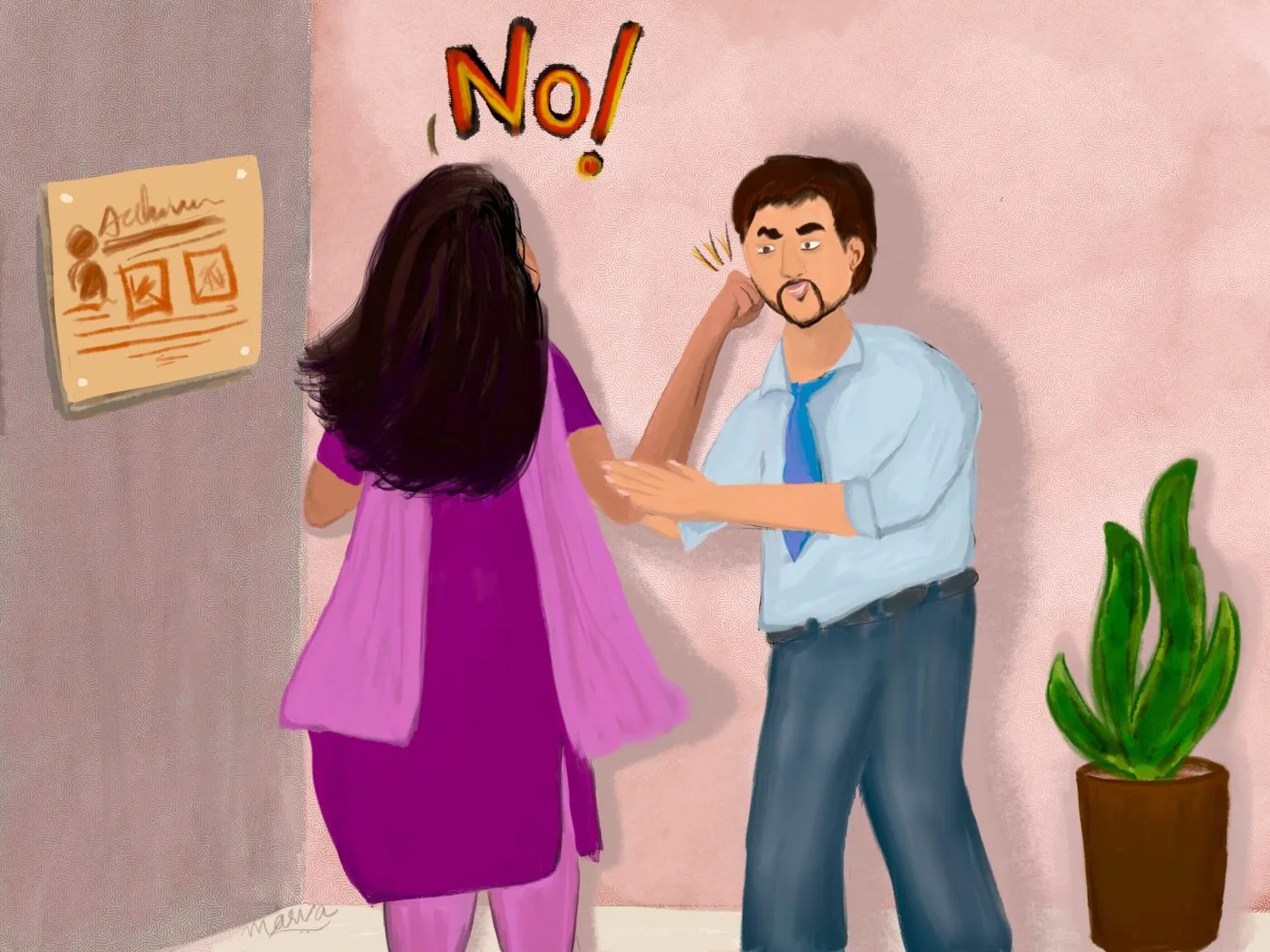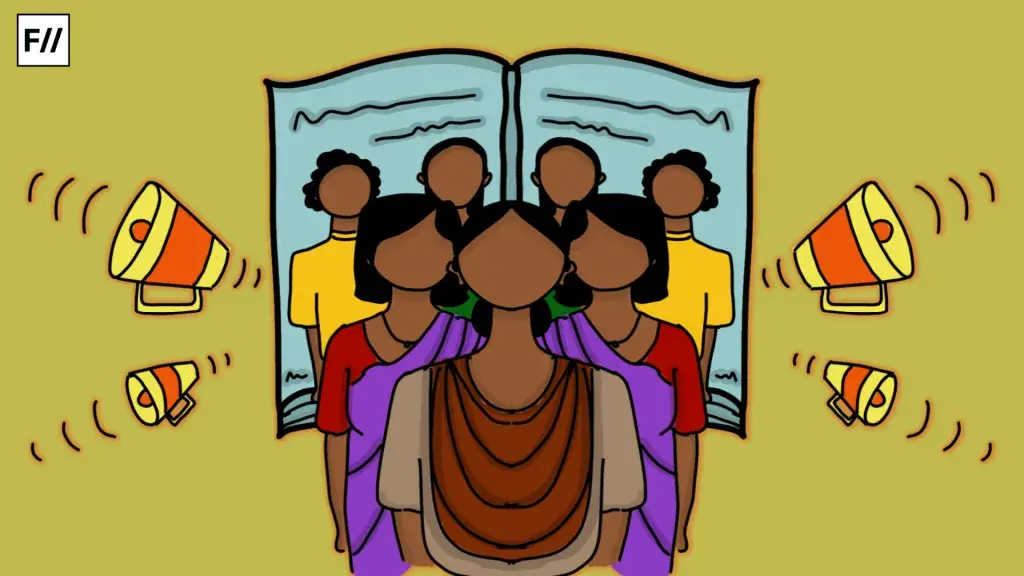A three-judge bench led by the Chief Justice of India, BR Gavai, recently held that the Sexual Harassment of Women at Workplace (Prevention, Prohibition, and Redressal) Act, 2013, also known as the POSH Act, cannot be made applicable to political parties. According to the bench, doing so would open a “Pandora’s Box”. They further justified it saying, “How do you declare a political party a workplace? Is there any employment there? When you join a political party, you do not get a job. There is no payment for your work.”
The bench was listening to an appeal filed against the Kerala High Court’s judgment rejecting the obligation of political parties to form Internal Complaint Committees (ICCs). The petitioners contended that the Act made no exception for any entity, public or private, and that this lacuna left women vulnerable to non-redressal of abuse.
The Cambridge Dictionary defines ’employee’ as a person who is paid to work for someone else. However, on scrutiny, one finds that as per Section 3 of the POSH Act, 2013, “no woman shall be subjected to sexual harassment at any workplace.” This provision does not explicitly refer to a ‘woman employee’. Other than this, Section 2(f) defines an employee as someone who works voluntarily or otherwise, whether for remuneration or not. Hence, by the wording of these provisions, it is clear that the Act does not intend to cover only female employees working in the organisation.
Recent cases of conviction of former Member of Parliament (MP) Prajwal Revanna being sentenced to life imprisonment for rape and circulation of obsecene videos of his house help and other cases of accusation on Bharatiya Janata Party (BJP) leaders BS Yediyurappa for assaulting a minor, Munirathna for gang rape and caste abuse, accusations by female wrestlers on MP Brij Bhushan Sharan Singh for assault, and ongoing case of Indian National Congress (INC) leader Vinaya Kulkarni for rape, kidnapping, and criminal intimidation; raise alarm bells on why this demand of POSH Act applying to political parties is a necessity.
Background of the POSH Act
The Union Government enacted the POSH Act in accordance with a mandate by the Supreme Court in its 1997 judgment.
Following the ghastly gang-rape of Bhanwari Devi, a social worker, in 1992, a Public Interest Litigation (PIL) was filed in court by Naina Kapur, the founder of a women’s rights advocacy organisation, Sakshi, along with other women-led groups. The gang-rape was carried out as a punishment to Bhanwari Devi for having intervened to stop a child marriage in a village in Rajasthan. Due to the lack of evidence and inadequacy in the police report, all five accused were acquitted. This led to a group of organisations coming together under the name of ‘Vishaka’ to file a PIL in the Supreme Court, flagging the absence of laws penalising workplace sexual harassment.
The bench led by then Chief Justice of India, J.S. Verma, laid down the ‘Vishaka Guidelines‘ in its landmark judgement, Vishaka and Ors. Versus State of Rajasthan and Ors. (1997) defining sexual harassment at the workplace and upholding the fundamental right enshrined under Article 14 (Right to Equality), 15 (Prohibition of Discrimination), 19(1)(g) (Right to practise any profession or carry on any occupation) and 21 (Right to life and personal liberty) of the Indian Constitution. These guidelines acted as the uncodified law to be followed until the Parliament enacted specific legislation.
These guidelines were inspired by Article 11 of the Convention on the Elimination of All Forms of Discrimination Against Women (CEDAW), 1949, which India ratified in 1993. According to this, states are obligated to take all necessary measures to ensure the advancement of women in every field of employment and the eradication of all forms of discrimination.
The judgment placed the responsibility of care and vigilance on the employer to prevent such incidents and provide a suitable procedure for conciliation, prosecution, and/or any other steps required in the event of an unfortunate incident at the workplace. The court also clearly defined sexual harassment as any unwelcome sexual behaviour, direct or indirect, and it includes-
- physical contact
- sexually coloured remarks
- sexual favours
- showing pornographic content
- any verbal or non-verbal conduct of a sexual nature.
Disciplinary proceedings in the course of such conduct, as well as filing a case in accordance with the provisions of criminal law, were other requirements. These measures were intended to ensure that no further harassment of the victim occurred and to provide protection against any harm.
The most significant formulation of this was the establishment of an Internal Complaints Committee (ICC), as also stipulated under Section 6 of the POSH Act, in any organisation or workplace employing ten or more employees. Its duty is to deal with complaints and determine their veracity, as well as to decide on the appropriate legal action and institutional-level compensation.
Revisiting the POSH Act
The Preamble of the POSH Act reads, “An Act to protect against sexual harassment of women at the workplace.” It has also defined workplace as any, “establishment, society, trust, non-governmental, organisation, unit or service provider”, that carries various activities, including service in Section 2(o).
The imminent question is, do political parties fit into any of these criteria? The Representation of the People Act, 1951, defines political parties as “associations of persons”, and by this, it can easily fit into the requirements of non-governmental organisations or establishments that provide services.
According to these definitions, the ruling of the Kerala High Court and its subsequent upholding by the Supreme Court are contradictory. A female political party worker is under some control or supervision. According to an article in the Deccan Herald, the annual audit reports of political parties submitted to the Election Commission of India reveal that a substantial amount, extending up to crores of rupees, is spent under the category of employee costs. In 2024 alone, the BJP spent ₹73,52,95,789 2024 as employee cost, and the INC spent ₹27,18,39,499 crores.
We must ask, if, as per the judgement, a conventional employer–employee relationship does not exist in political parties, which was also not considered as a traditional workplace, where is all this money being directed to?
POSH Protects Workers, Not Women
It is argued that ICCs are only applicable to the employees of the party and not the women functionaries because of the absence of an employer-employee relationship. However, as stated before, the wording of the Act attempts to penalise sexual harassment in the workplace regardless of whether the alleged victim is an employee or not (in this case, a functionary); she certainly falls under the scope of redress.
The employer’s power in the workplace goes beyond the job description, according to this act. It also includes the jurisdiction to provide redress under the Act by regulating the workplace, allowing or disallowing people into the workplace, expressing terms or otherwise, and duly preventing any case of harassment. Suppose a female functionary working in the party office faces sexual harassment from an employee, who can be a leader of the party or another functionary, and they are working under specific express or implied terms of employment for some benefit, monetary or otherwise. In that case, their actions must be addressed under the Act.
Indian politics remain gated spaces for female participation. Even as the number of female voters is increasing, female representation as leaders remains abysmally low. The 33% reservation in the Lok Sabha and State Legislative assemblies, as provided by the Nari Shakti Vandan Adhiniyam (106th Constitutional Amendment), is subject to the delimitation process first. The World Economic Forum’s Global Gender Gap Report 2025 indicated a worsening gender gap in political empowerment for India. India was ranked 131st out of 148 countries.
With Indian politics already being deemed as the dirtiest of all professions, the impact of this judgment, which prevents the application of the one law that reassures women of their dignity and empowers them to seek employment, is undoubtedly going to impact the fight for equal and inclusive political participation.
Local participation is indeed appreciable; however, women remain underrepresented in both the state and central levels of the legislature. Merely 13.6% membership of the 18th Lok Sabha is constituted by women, and 17% in the Rajya Sabha. The national average for the State Legislative Assemblies is 9% and even the nearly 46% elected representatives in Panchayati Raj Institutions (PRIs) face issues about patriarchal control, also infamously called as the ‘Panch-Pati’ system.
We are living in a country where J. Jayalalithaa, the Leader of the Opposition in the Tamil Nadu legislative assembly of 1989, was physically assaulted by members of the ruling Dravida Munnetra Kazhagam (DMK) party, which included pulling the loose end of her saree. If this sounds like ancient history, in January 2025, Ramesh Bidhuri, a former MP, did not think twice before making sexist comments, claiming to make the roads in the Kalkaji constituency as smooth as Priyanka Gandhi’s cheek during campaigning. He did not stop there, but went on to target former Delhi Chief Minister Atishi Singh, claiming that she had changed her surname after changing her father.
With Indian politics already being deemed as the dirtiest of all professions, the impact of this judgment, which prevents the application of the one law that reassures women of their dignity and empowers them to seek employment, is undoubtedly going to impact the fight for equal and inclusive political participation.
About the author(s)
Second year student of Media Studies at CHRIST (Deemed to be University), BRC, Bangalore. A trained Kathak dancer, theatre artist and political nerd.





